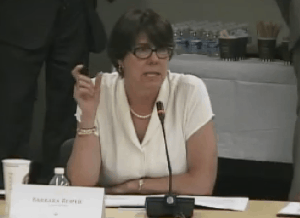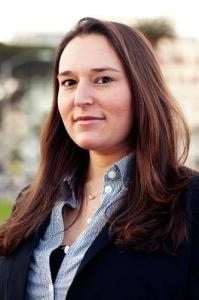The Securities and Exchange Commission hosted a meeting of the Investor Advisory Committee yesterday where they tackled the very important issue of defining an “accredited investor”. Barbara Roper, the Chairman of the ‘Investor as a Purchaser Subcommittee’ closed the meeting without recommendations on altering the definition, stating their intent to meet with DERA (the economic research arm of the SEC), CorpFin and the State Regulators (read NASAA). Roper stated they wanted to gather data “regarding the harm for un-sophisticated investors”.
 The formation of the IAC was mandated by the Dodd-Frank Act, a monolithic piece of legislation that, while intended to improve financial markets, has overwhelmed bureaucrats and private industry alike. The IAC has the mission to advise the Commission on issues such as protecting investor interests and promoting investor confidence in the securities market. The committee is made up from both private and public sectors and is comprised of 21 individuals. The current Chair is Kurt Schacht who is the Managing Director of the CFA Institute.
The formation of the IAC was mandated by the Dodd-Frank Act, a monolithic piece of legislation that, while intended to improve financial markets, has overwhelmed bureaucrats and private industry alike. The IAC has the mission to advise the Commission on issues such as protecting investor interests and promoting investor confidence in the securities market. The committee is made up from both private and public sectors and is comprised of 21 individuals. The current Chair is Kurt Schacht who is the Managing Director of the CFA Institute.
During the meeting yesterday, an important segment of the agenda was definition of an accredited investor. The current definition, created in 1982, states that only individuals with an annual salary of $200,000 ($300,000 if married) or with net assets of $1 million (excluding their home) may participate in certain private placements – thus excluding the vast population of the country. While these types of securities have a tendency to be riskier than others, they also represent opportunities for a greater return on investment. Part of the ongoing polemic surrounds the role of the SEC in determining individual rights to choose how they invest their own  funds.
funds.
DJ Paul, the current Crowdfund Intermediary Regulatory Advocates Chair (CFIRA), attended the meeting yesterday. While the public was invited, they were not allowed to make any comments. Paul stated the following after the event:
“Several members of the committee continue to confound, perhaps not intentionally, the difference between fraud and failure. And some seem to forget that the mission of the committee, if not the SEC broadly, is to protect investors from bad actors, but not to protect investors from themselves.”
In a comment letter to the SEC published by SeedInvest and posted on Crowdfund Insider, Kiran Lingham highlighted the challenges of the current definition noting that many accomplished individuals are disenfranchised today by the antiquated rule. Lingham then posited the profound risk on the economy if limits were increased – something that some committee members clearly advocate.
 Jilliene Hellman, founder and CEO of leading Real Estate crowdfunding platform Realty Mogul, commented on the potential changes to the definition:
Jilliene Hellman, founder and CEO of leading Real Estate crowdfunding platform Realty Mogul, commented on the potential changes to the definition:
“It would be a shame to see the definition of an accredited investor become even more onerous. The JOBS act was meant to open up the private markets for investors, and adjusting the income or net worth requirements for accredited investors upward would serve the opposite purpose.”
“It’s incredibly important that investors are protected – and a core focus of ours at Realty Mogul, but what we’ve found is that the majority of our investors are highly sophisticated. I’d hate to see those investors lose out on the opportunity to invest in private markets if income requirements are increased by the SEC.”
While the discussion was wide ranging yesterday, several committee members did caution the group as to what they are truly trying to accomplish.
Darcy Bradbury, from DE Shaw & Company questioned,
“What is the appropriate role for government? What if any should the commission play in the private securities market. Perhaps a role not beyond Fraud (for the commission) … I start from the point that private securities are not bad. Some days the public markets scare me more..”
Many acknowledged the current methodology as not being perfect. One committee member pointed out that today we do not highly regulate many other sectors of society, such as purchasing a home or having children – people should have the right to choose [where they invest].
Another participant described the investing population as either “wolves or sheep”. Wolves, according to the committee member, have bloomberg terminals in front of them 12 hours a day so that means we are pretty much all sheep – in his opinion.
At one point things got testy as Damon Silvers, from the AFL-CIO, stated, “perhaps we should just disband the committee and let markets decide … and the building here (the SEC) should disband”.
In the end there was no consensus, only a commitment to review.
In the fast evolving landscape of global finance – change, for people accustomed to a process that is over 30 years old, is quite difficult. At least there was some recognition that a bank account does not equate sophistication and putting some individuals at the back of the investment bus is not an equitable approach.


